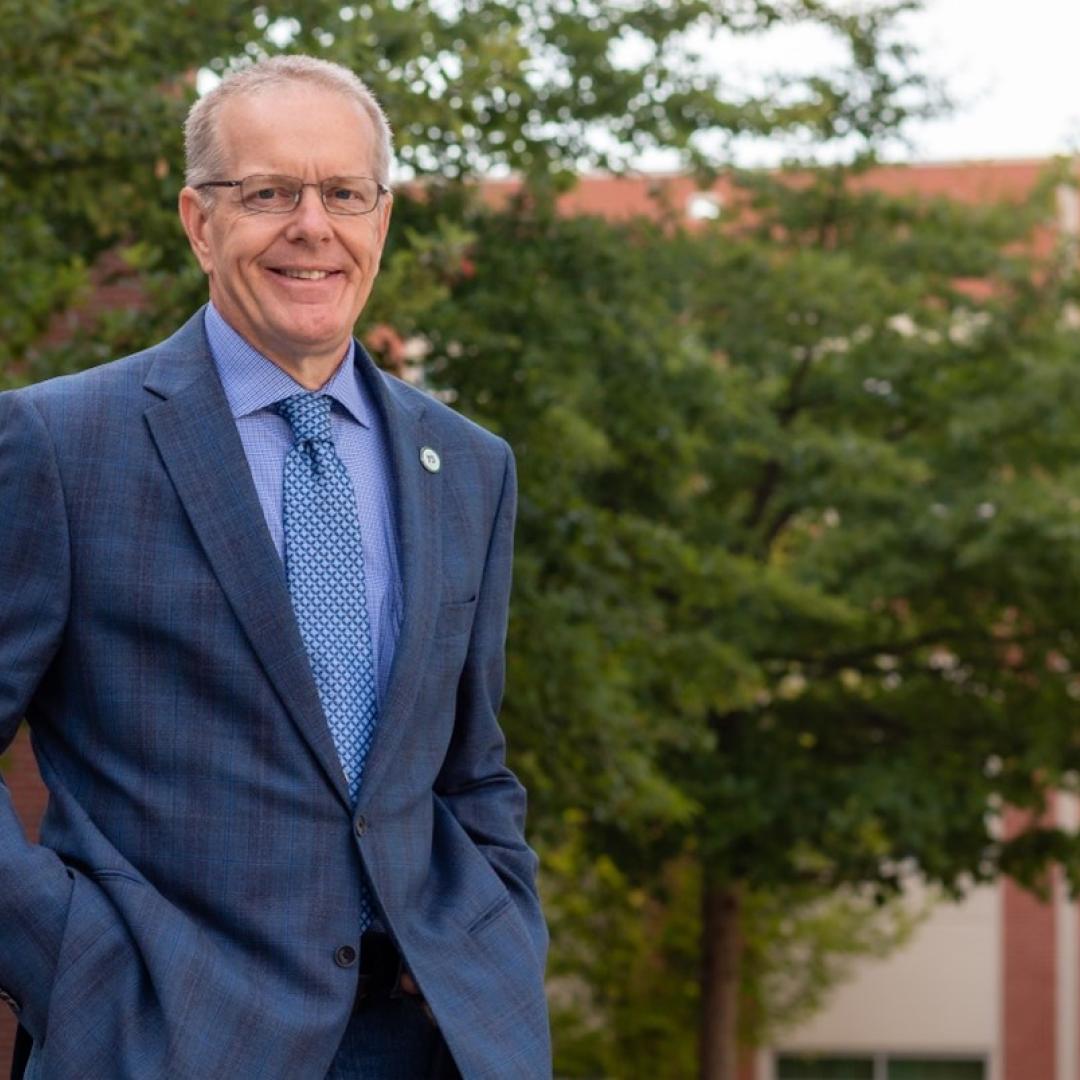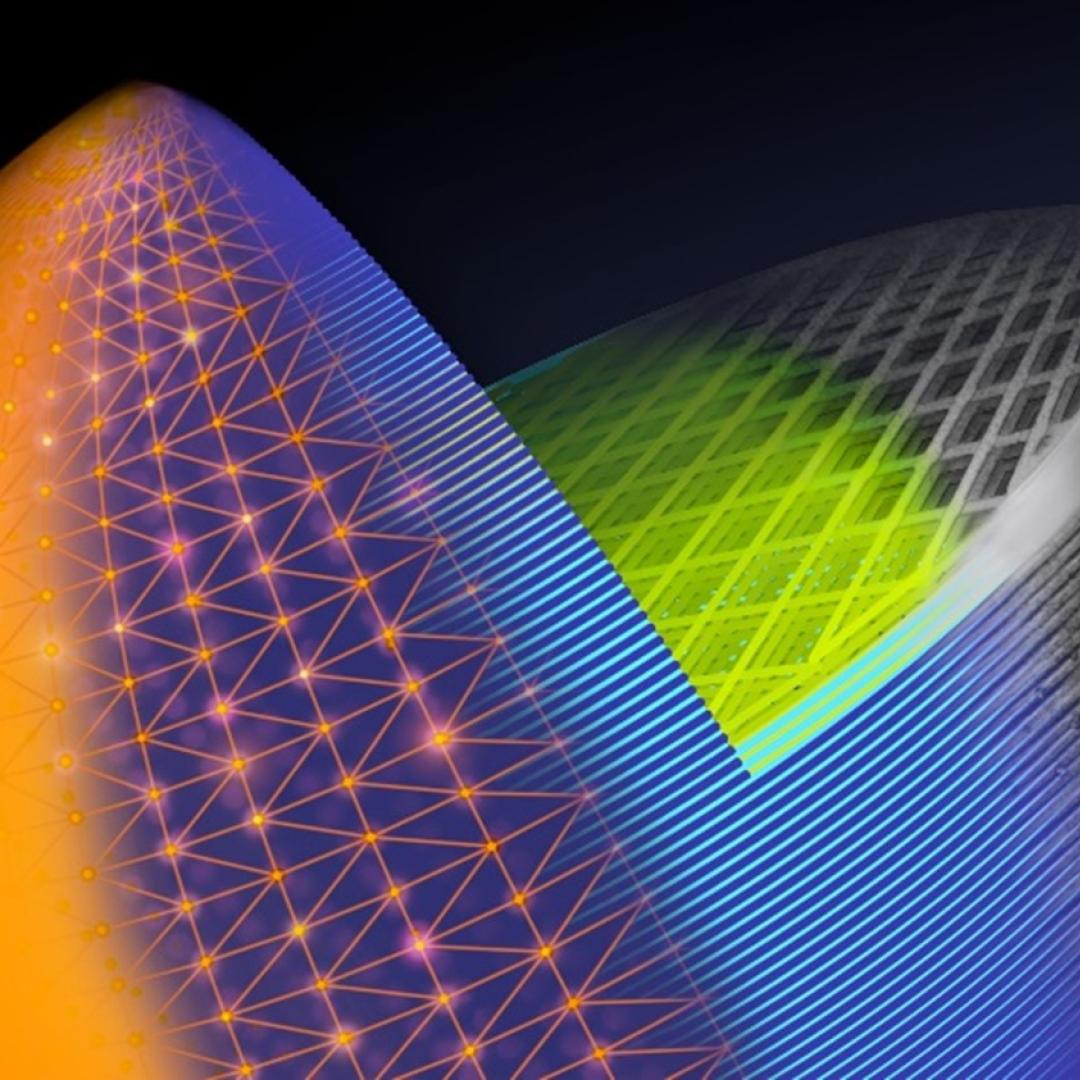
Filter News
Area of Research
- Advanced Manufacturing (1)
- Biology and Environment (17)
- Clean Energy (64)
- Computational Biology (1)
- Computer Science (2)
- Fusion and Fission (22)
- Fusion Energy (11)
- Materials (33)
- Materials for Computing (11)
- National Security (5)
- Neutron Science (10)
- Nuclear Science and Technology (13)
- Quantum information Science (8)
- Supercomputing (45)
- Transportation Systems (2)
News Type
News Topics
- (-) Coronavirus (32)
- (-) Exascale Computing (28)
- (-) Fusion (47)
- (-) Molten Salt (7)
- (-) Polymers (22)
- (-) Quantum Science (44)
- (-) Transportation (72)
- 3-D Printing/Advanced Manufacturing (85)
- Advanced Reactors (26)
- Artificial Intelligence (67)
- Big Data (42)
- Bioenergy (71)
- Biology (81)
- Biomedical (43)
- Biotechnology (14)
- Buildings (42)
- Chemical Sciences (42)
- Clean Water (27)
- Climate Change (77)
- Composites (19)
- Computer Science (137)
- Critical Materials (15)
- Cybersecurity (23)
- Decarbonization (56)
- Education (1)
- Emergency (2)
- Energy Storage (74)
- Environment (158)
- Fossil Energy (4)
- Frontier (28)
- Grid (46)
- High-Performance Computing (65)
- Hydropower (11)
- Irradiation (3)
- Isotopes (40)
- ITER (6)
- Machine Learning (34)
- Materials (107)
- Materials Science (97)
- Mathematics (7)
- Mercury (10)
- Microelectronics (2)
- Microscopy (39)
- Nanotechnology (40)
- National Security (45)
- Net Zero (10)
- Neutron Science (86)
- Nuclear Energy (86)
- Partnerships (22)
- Physics (38)
- Quantum Computing (26)
- Renewable Energy (1)
- Security (15)
- Simulation (41)
- Software (1)
- Space Exploration (23)
- Statistics (1)
- Summit (38)
- Sustainable Energy (95)
- Transformational Challenge Reactor (4)
Media Contacts

Subho Mukherjee, an R&D associate in the Vehicle Power Electronics Research group at the Department of Energy’s Oak Ridge National Laboratory, has been elevated to the grade of senior member of the Institute of Electrical and Electronics Engineers.
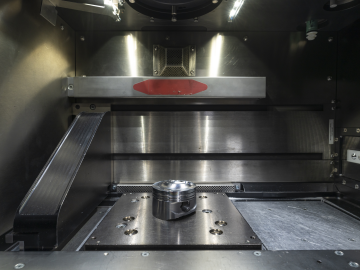
Dean Pierce of ORNL and a research team led by ORNL’s Alex Plotkowski were honored by DOE’s Vehicle Technologies Office for development of novel high-performance alloys that can withstand extreme environments.
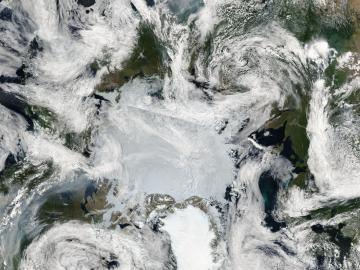
Wildfires have shaped the environment for millennia, but they are increasing in frequency, range and intensity in response to a hotter climate. The phenomenon is being incorporated into high-resolution simulations of the Earth’s climate by scientists at the Department of Energy’s Oak Ridge National Laboratory, with a mission to better understand and predict environmental change.
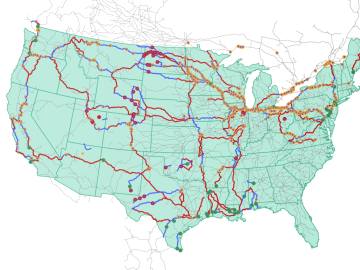
Oak Ridge National Laboratory researchers used images from a photo-sharing website to identify crude oil train routes across the nation to provide data that could help transportation planners better understand regional impacts.
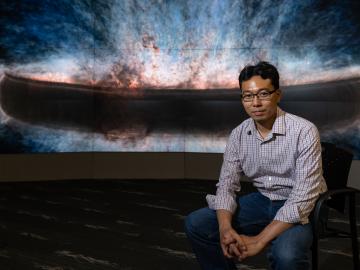
With the world’s first exascale supercomputer now fully open for scientific business, researchers can thank the early users who helped get the machine up to speed.
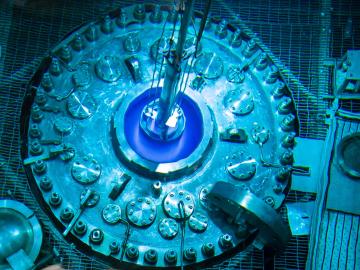
Creating energy the way the sun and stars do — through nuclear fusion — is one of the grand challenges facing science and technology. What’s easy for the sun and its billions of relatives turns out to be particularly difficult on Earth.
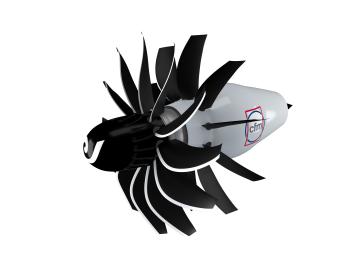
To support the development of a revolutionary new open fan engine architecture for the future of flight, GE Aerospace has run simulations using the world’s fastest supercomputer capable of crunching data in excess of exascale speed, or more than a quintillion calculations per second.
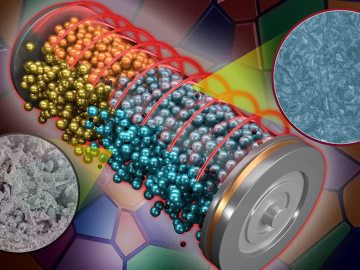
ORNL scientists found that a small tweak created big performance improvements in a type of solid-state battery, a technology considered vital to broader electric vehicle adoption.
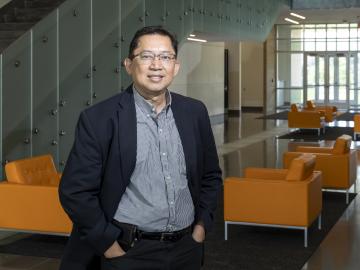
Rigoberto Advincula, a renowned scientist at ORNL and professor of Chemical and Biomolecular Engineering at the University of Tennessee, has won the Netzsch North American Thermal Analysis Society Fellows Award for 2023.
For the third year in a row, the Quantum Science Center held its signature workforce development event: a comprehensive summer school for students and early-career scientists designed to facilitate conversations and hands-on activities related to


